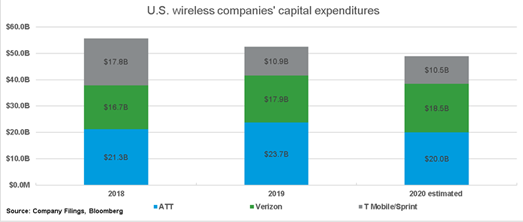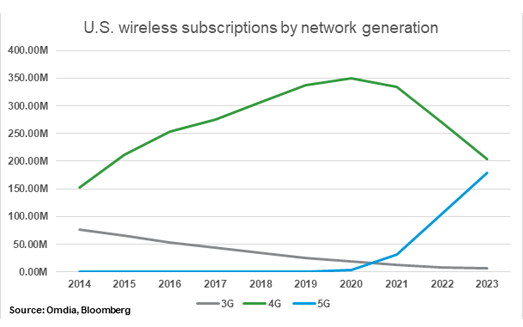Take sports gambling, for one possible example of such disruption as the Wall Street Journal reported last year. Fans can already gamble using apps on their phones, but those wagers are focused on the result and which team ultimately wins the game. With new network speeds, wireless systems could have the computing power to enable fans in a stadium to bet on every single play, with artificial intelligence that allows this to happen in real time.
Even more data possibilities
All of these new real-time applications and rapid machine learning enabled by 5G will put an even greater emphasis on the importance of data in any business, whether a company uses that data to create a better customer experience or uses it to create more powerful intelligence for the enterprise itself.
Business leaders need to evaluate where their company is on its data journey. Here are some questions to ask:
- How can we make sure data drives our decision-making?
- What role does data play in the core product we provide our customers?
- How can we provide better value to customers using new 5G capabilities?
- How can we use data in new ways to improve the customer experience?
In the tech sector, companies building consumer-focused apps and tools will be able to develop those apps to interact with customers based on what customers are doing in real time. Envision walking down the cereal aisle in a grocery store, for example, and an app on your phone shows you coupons for the specific brands and products that are right in front of you. Sensors and 5G networks will create the opportunity to connect our devices to our shopping habits to a greater extent than they are already connected, resulting in highly tailored, precise offerings. With this level of personalization, of course, the privacy and security of users’ data will need to be central to these innovative experiences and a top priority for the companies making such experiences possible.
From warehouse robots to remote surgery
Faster connectivity and a wealth of data will be a boon for consumer-focused businesses, yes, but the potential goes much further than that.
As the reality of nationwide 5G draws near, cell phone providers are focusing on conveying the health care and public safety benefits of this new network. In enormous warehouses, free-range robots retrieve items for packing and shipping. Tech companies developing products that enable remote surgery and telehealth could dramatically improve health care in rural areas. At a time when huge swaths of the workforce are doing their jobs from home, 5G-enabled virtual reality platforms could breathe new life into digital collaboration tools.
When we contemplate the possibilities of 5G networks, the list seems almost limitless. But to be able to tap into these possibilities, businesses need to have a thorough understanding of what their current infrastructure allows for, what their vision is for a data-driven enterprise and how they will need to adapt their core business processes to thrive in the data rich environment of the future.



